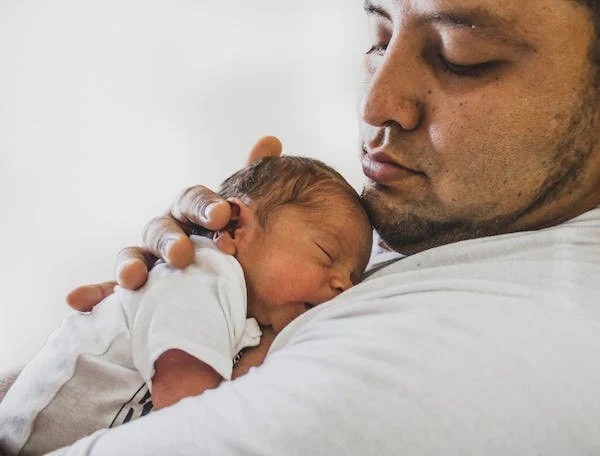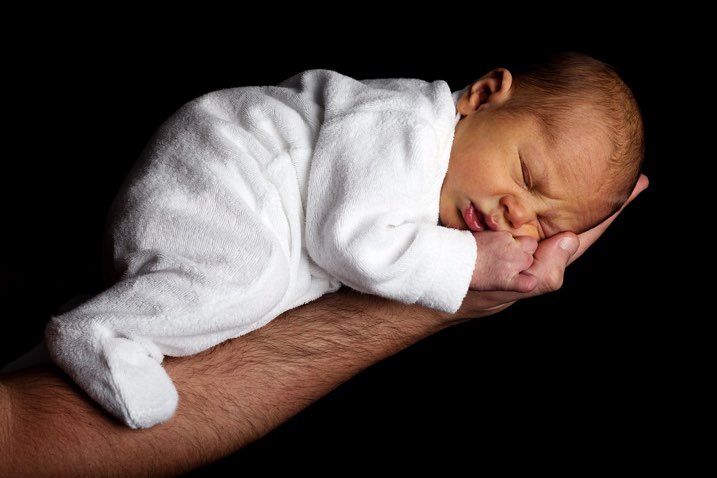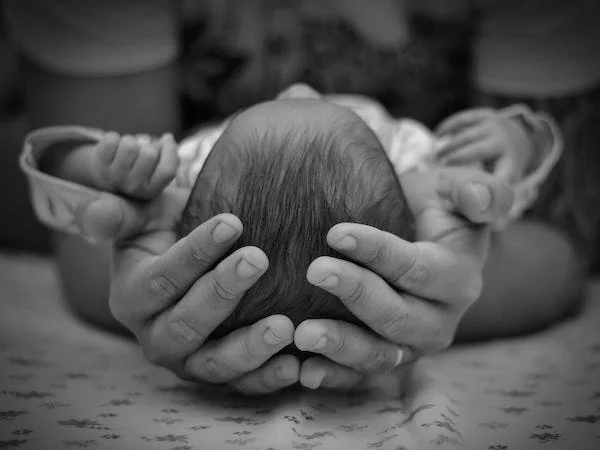Out of all little things about newly born baby that troubles parents the most, hiccup is top in the list. Here in this post we will discuss in detail, how to cure hiccups in newborns, how to prevent it and whether hiccup is good or bad for a baby ? When should you really worry ?
How to cure hiccups in newborn
We have written an article beforehand on mechanism of hiccup and 6 WEIRD CAUSES OF HICCUP IN BABY, parents need to know. Here in this post we will help you to find out solution to this. Below are certain remedies you can try at home to get relief from hiccups for your baby.
1.Change position
Generally supine position/ horizontal position makes hiccup worse. Hence change position of baby to upright or vertical with head up.
This position is more comforting for a baby with hiccup. Also vertical position will dislodge extra gas accumulated in tummy.
2.Burping
Burping is nothing but putting baby on shoulder, with one hand supporting baby, and then using the other hand to pat gently on back. Keep on doing it for 10 to 15 mins until there is a burp sound.
Burping will take out excess gas from stomach.
3.Rubbing back
Rubbing on back of baby acts as an external sensory stimulus. This counteracts nerve irritation and hence relieves hiccup.
4.Rocking baby
Rocking is a repeated gentle back and forth motion done in a baby which is analogous to a swinging movement. In general it helps to put a baby to sleep.
Keep baby on your shoulder and rock it to and fro gently for few minutes. It comforts baby. This also relaxes diaphragm and eases off its spasm.
5.Latching again
If hiccups still persist even after following all the above steps, then latch baby on mother’s breast. This sometimes will put an end to hiccups.
6.Pacifier
Some encourage to use pacifier for a brief period so as to get rid of hiccup. Pacifier should be sterile. However paediatricians don’t recommend pacifier because of its potential to spread infection to a baby. Hence avoid using it on regular day to day basis.
Sucking and swallowing movement will sometimes aid in alleviating hiccup.
7.Wait patiently
Mostly hiccups don’t harm a baby. It is just a transient phenomenon, which clears off on its own.
With that in mind, give baby some time. Wait patiently for hiccup to resolve spontaneously.
8.Treat GERD
GER stands for gastro oesophageal reflux. For babies, often it happens that milk regurgitates back from stomach to mouth, which is known as gastro oesophageal reflux. If this reflux is severe and long lasting then this is identified as GERD. Your paediatrician is the right person to make diagnosis of GERD and treat it.
Reflux of milk can be prevented to some degree by keeping head end of baby-bed little elevated at around 30 degree. Keep baby such that body and head are aligned in one plane.
If along with hiccups, baby is having frequent regurgitation of milk, coughing, wheezing and it is irritated oft-times and is not gaining weight then consult a paediatrician for further medical management.
9.Treat underlying condition
Seldom hiccup is associated with an underlying disease condition. This underlying illness should be treated in order to cure hiccups in such babies.
If your child is having persistent hiccups or intractable hiccups, then you must consult a paediatrician. We have explained in detail what is persistent hiccup and what is intractable hiccup later in this blog post. Keep reading to wise up.
Breath holding technique
Breath holding is a technique that works for adults to relieve hiccup. Medical term for “voluntary Breath holding” is “supra-supramaximal inspiration”. It is instructed step by step below.
- Step 1 : Exhale air out.
- Step 2: Breath air in.
- Step 3 : Hold breath for 10 seconds.
- Step 4 : Again breathe in and hold breath for 10 seconds.
- Step 5 : Repeat this method total of 3 times.
Holding breath in inspiration in such way, helps to break off further hiccups.
Important note :
- Breath holding works for adults, but never try it for a baby.
- Also do not give water to small baby to cure hiccups in newborns. It does more harm.
How to prevent hiccups

Here are 9 ways how to prevent hiccups in babies.
- Give feeding on time– Feed baby before it gets too hungry. Pick early hunger cues and feed baby in a timely manner.
- Feed when calm– Aim to give feeds when baby is calm.
- Frequent small feeds– Always go for small and frequent feeds. This is to avoid over feeding related hiccups.
- Proper latching – Make sure that baby is latching properly on mother’s breast while suckling.
- Feeding in head upright – Always feed a baby such that head of baby is little higher up than body, rather being flat at the same level.
- Slow down feeding– Preterm babies are often given feeding with katori and spoon. Be patient and do not be in a hurry while giving milk to a preterm.
- Burping – Burping should be done for 10-15 minutes after each feed to remove excess air trapped in tummy. Additionally you may also burp halfway through feeding.
- Right nipple size – If baby is on bottle feed then opt for appropriate nipple size. Nipple should not be too small or too big.
- Air free bottle tip – Tip of feeding bottle had better be air-free while baby is sucking on it.
Important note :
- Bottle feeding is not recommended for any baby. Mother’s milk is the greatest food for a baby.
- Don’t use self-prescribed home remedy medications to prevent or treat hiccups, which are not safe.
Should you worry if your baby has hiccup?
In most cases parents are too much worried that baby is having hiccups. In reality, it doesn’t cause any trouble to the baby. Hiccups in general are not of much significance. So parents need not worry.
- Hiccups occur routinely in babies especially till first 2 months of life. It is more so common in newborns ( first one month of life ).
- Preterm babies ( babies born before time ) are even more prone for hiccups. It is observed that these babies spend approximately 15 minutes a day having hiccups.
Fun fact here is that, babies do produce hiccups in 3rd trimester of pregnancy inside uterus! Mother can feel those repeated jerky movements and this is normal in all respects.
The bottom line is hiccups in babies are mostly harmless. Transient hiccups don’t hamper day to day activities like feeding or sleeping in baby.
In fact a study conducted in university college london in 2019, declared that hiccup is a sign of “healthy brain development” in a baby.
When should you worry ?
Following are the specific situations mentioned below for which parents should be cautious.
Persistent hiccup
If hiccups continues for 48 hours then it is persistent hiccups. If this happens then, there possibly there is some underlying pathology. Persistent hiccup should be evaluated by a physician.
Intractable hiccup
When hiccup sticks around beyond 2 months then it is intractable hiccup. This brings about distress and discomfort in baby. Child becomes fatigued and malnourished too if it continues. Thus intractable hiccup needs treatment.
Important note :
If hiccup is persistent or intractable then there can be disease somewhere in brain, spinal cord, lung pleura or diaphragm. Hence always it is the best decision to consult a physician in such hiccup
Conclusion
I hope this article does justice to its title. I just wish new parents can find this article and get some insight into the subject.
Do share it with new parents maximum.
Caution
All the informations provided here are for educational and awareness purpose only. Kindly do not use these as alternative to medical consultation.




